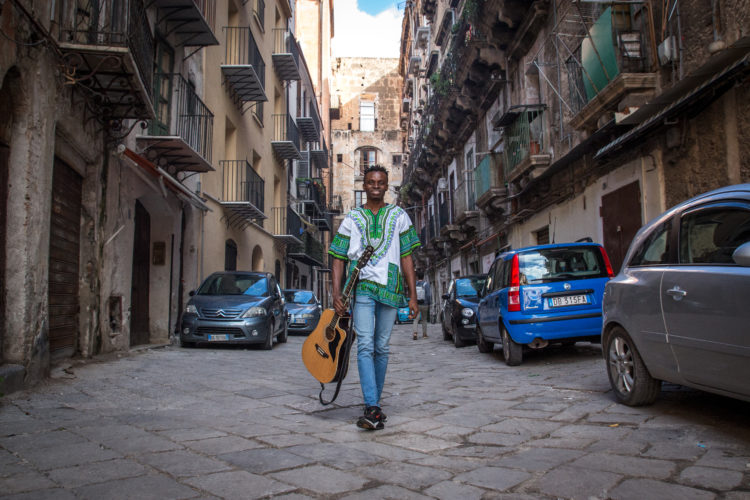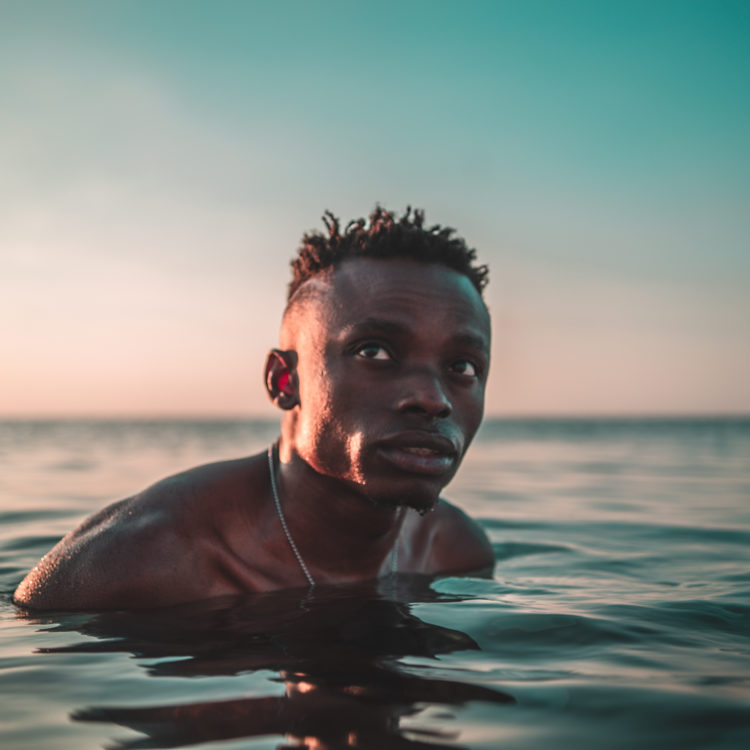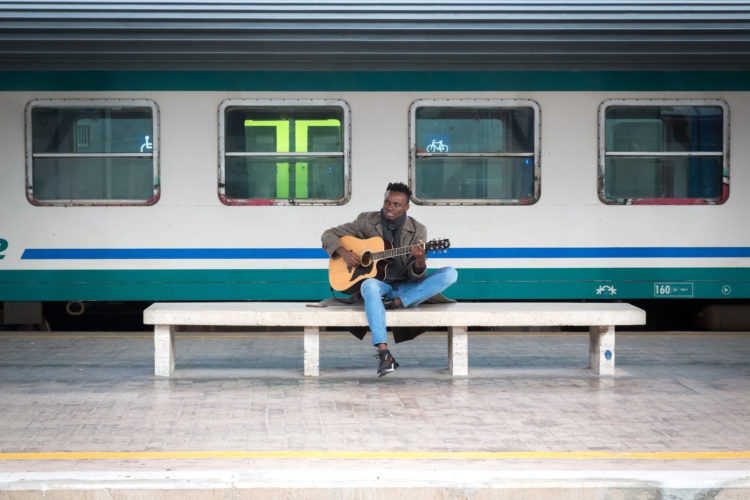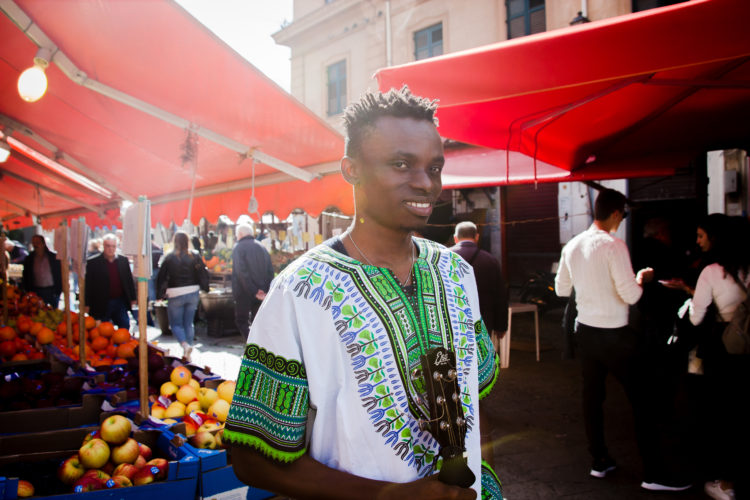Chris Obehi was just 17 when he ran away from Boko Haram and left Edo State in Nigeria. He wasn’t just another West African migrant willing to risk his life to cross the Atlantic, in search of a better life. In Libya, he was held captive, along with 200 other migrants. When he escaped, he embarked on a boat for the long journey to Lampedusa, Italy.
Now 22, he has released the album Obehi, which won this year’s Rosa Balistreri e Alberto Favara award, Sicily’s most prestigious music honor. The album is about integration and inclusion, and his rendition of the traditional Rosa Balistreri song “Cu Ti Lu Dissi” has gone viral online. Obehi is also an ode to the community in Sicily that welcomed him and embraced his heritage as well as his love for music.
Why would a 17-year-old decide to leave Nigeria for a perilous boat trip to Europe?
Nigeria used to be a place where every young man, woman and child could dream and live out their ambition for greatness, but Nigeria today is becoming a place of no hope for the young and old, a place where protection for citizens has been seized. People used to say that the youth are the leaders of tomorrow, but today the reverse seems to be the case. In Nigeria today, the youth have become the slaves of the corrupt elite.
Can you please describe your journey from Nigeria to Lampedusa?
My journey from Nigeria to Lampedusa was not an easy one. From where I started in Nigeria to Niger was really tough, because it was a risk I had to take. Life in Niger was not what I expected, because I was faced with a lot of challenges, coming from the Niger people. I was tortured and I saw people getting shot. For a moment, I thought it was going to be the end, but I was lucky to escape, and I made my way to Libya.
Getting to Libya was even worse. I started working in a car park, washing cars, trying to make a living and planning to leave because Libya was not a safe place to stay. Then, I was kidnapped and sent to a prison. I was locked up even though I hadn’t committed any crime. I spent close to two weeks in the prison, where I saw a lot of horrible things they do to people. Some were shot, killed, and thrown into the sea. Then one day, I escaped to the seaside. I took a balloon boat called Lampalampa, and after two days I was rescued and taken to Lampedusa.
Was music part of your childhood in Nigeria?
Music has always been a part of me, because let’s say I am lucky to be in a family where my mom and dad love listening to music. I remember my dad reminding me of my grandfather, who he said was a great guitarist. I remember watching my mom sing gospel songs at church. My dad loves listening to reggae songs by Bob Marley and Peter Tosh, but he also listens to Fela Kuti. Hearing all these sounds, I started developing a love for afrobeat, pop songs, gospel songs, reggae songs, and so on.
I also love watching my uncle play the piano in church. That was when the desire to play an instrument came. I started taking lessons from my uncle. Another instrument I came across was the bass guitar. Back in Nigeria, I didn’t have enough money for bass lessons, so I decide to practice bass guitar, drums, percussions, all on my own.

On your album Obehi, lyrics are in English, Edo, Sicilian and Italian. Do you think that’s the reason it was so impactful in Italy and overseas?
Making music in different languages is something that comes natural to me. I love it, because I see language as a vehicle for my songs to get to people. I also see music as a universal language without limits based on, say, where you come from, your skin color, your race, or your language. That’s why I think music can change the world.
Do you think the Black Lives Matter movement resonates with the End SARS movement in Nigeria?
Well, I would say Black Lives Matter creates an awareness in black and white communities. Saying black lives are important is both a movement of awareness and a denunciation of police brutality, just like the End SARS movement in Nigeria is saying no to police brutality and oppression against citizens.
What are your 2021 plans for your music?
I have a lot of new projects and songs on my mind for 2021. I hope things get better soon.
Yasmina F. Edwards is the Founder & CEO of EGM NY. You can follow her on Instagram @yasminafedwards. Chris Obehi’s Instagram is @chris_obehi



